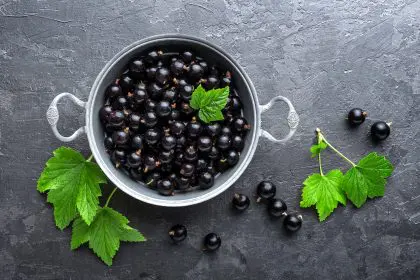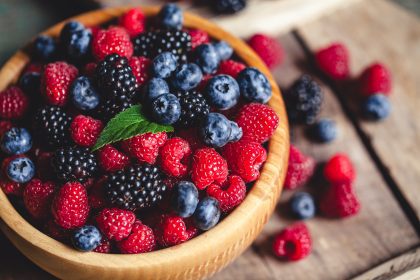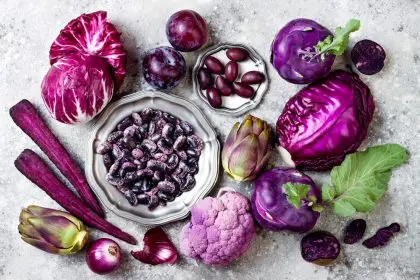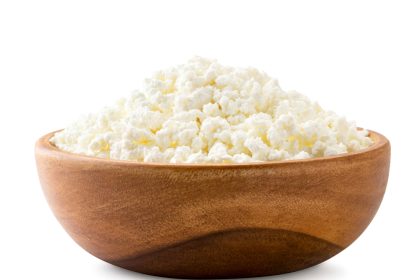While blueberries often steal the spotlight in the antioxidant world, numerous other foods pack even more impressive free-radical fighting power. These 15 exceptional options deliver extraordinary benefits for your body’s cellular health, immune function, and longevity.
The essential role of antioxidants in your body
Antioxidants serve as your body’s natural defense system against harmful molecules called free radicals. These unstable compounds form during normal metabolism but increase significantly when exposed to pollution, ultraviolet light, processed foods, and stress. Left unchecked, free radical damage accelerates aging and creates the perfect environment for chronic diseases to develop.
The protective compounds found in certain foods neutralize these destructive molecules before they can harm healthy cells. By incorporating antioxidant-rich options into your daily diet, you establish a powerful shield against oxidative stress while supporting your body’s natural repair mechanisms.
Dark chocolate delivers mood-boosting protection
- Dark chocolate contains an impressive array of antioxidants including flavonoids, polyphenols, and theobromine that far exceed the antioxidant capacity of many fruits. The higher the cocoa percentage, the greater the benefits. These compounds not only protect cells from damage but also improve blood flow to the brain and heart.
Research shows consuming dark chocolate in moderation can enhance mood by boosting serotonin levels while simultaneously reducing inflammation throughout the body. For maximum benefits, choose varieties with at least 70% cocoa content and minimal added sugar.
Goji berries offer immune-strengthening properties
- Goji berries have earned their superfood status through their exceptional nutritional profile. These vibrant red berries contain substantially more vitamin C than blueberries alongside beta-carotene, zeaxanthin, and unique polysaccharides that stimulate immune function.
Traditional Chinese medicine has utilized goji berries for centuries to support vitality and longevity. Modern research confirms their ability to reduce inflammatory markers, protect eye health, and enhance cellular protection against environmental stressors. Add dried goji berries to trail mix, oatmeal, or smoothies for a nutrient-dense boost.
Nuts deliver heart-protective antioxidants
- Walnuts contain alpha-linolenic acid, an omega-3 fatty acid rarely found in plant foods, alongside ellagic acid and melatonin that combat cellular damage. Their unique antioxidant profile helps reduce inflammation while supporting brain and cardiovascular health.
- Pecans deliver catechins and ellagic acid that effectively neutralize multiple types of free radicals. Their high polyphenol content ranks them among the most antioxidant-rich nuts available, with research showing they can lower LDL cholesterol oxidation—a major factor in heart disease development.
Both varieties maintain their nutritional integrity when consumed raw or lightly toasted, making them perfect additions to meals or as standalone snacks.
Everyday fruits with extraordinary powers
- Apples contain phloridzin, quercetin, and chlorogenic acid—polyphenols that support liver function while reducing oxidative damage throughout the body. The skin contains the highest concentration of these beneficial compounds, delivering five times more antioxidants than the flesh alone.
Research shows regular apple consumption correlates with reduced risk of neurodegenerative conditions and improved metabolic health. The combination of soluble fiber and antioxidants makes apples particularly effective for reducing inflammation while supporting digestive wellness.
- Pomegranates deliver punicalagins and anthocyanins that demonstrate remarkable stability and bioavailability compared to other fruit antioxidants. These compounds efficiently cross the blood-brain barrier, offering neuroprotective benefits alongside their anti-inflammatory properties.
Studies show pomegranate extract provides more potent antioxidant activity than red wine or green tea. The arils (seed pods) and juice offer similar benefits, making this fruit versatile for various culinary applications from smoothies to salads.
Unexpected vegetable champions
- Artichokes might seem unlikely antioxidant superstars, but these vegetables contain some of the highest levels of chlorogenic acid and cynarin found in the plant kingdom. These compounds support liver detoxification pathways while helping regulate cholesterol metabolism.
Research demonstrates artichokes contain more antioxidant capacity per serving than many berries, with particular benefits for digestive and cardiovascular health. Whether enjoyed steamed, grilled, or in dip form, artichokes deliver exceptional nutritional value.
- Leafy greens, particularly kale, provide a diverse array of antioxidants including lutein, beta-carotene, and flavonoids alongside essential vitamins and minerals. Their high polyphenol content helps neutralize free radicals while supporting cellular repair mechanisms.
Studies show regular consumption of dark leafy greens correlates with reduced inflammation markers and slower cognitive decline with age. Their versatility makes them easy additions to numerous dishes from smoothies to stir-fries.
Potent seeds and spices
- Chia seeds deliver chlorogenic acid, caffeic acid, and kaempferol—plant compounds with significant antioxidant and anti-inflammatory effects. Despite their tiny size, they contain more antioxidants than many larger foods while providing omega-3 fatty acids and fiber.
Research shows chia seeds help stabilize blood sugar levels while reducing oxidative stress throughout the body. Their ability to absorb liquid makes them perfect for puddings, smoothies, and as egg replacements in baking.
- Turmeric contains curcumin, a polyphenol with exceptional ability to neutralize multiple types of free radicals while inhibiting inflammatory enzymes. This golden spice activates the body’s own antioxidant enzymes, creating a dual approach to cellular protection.
Studies demonstrate turmeric’s effectiveness in reducing oxidative damage markers when consumed regularly. Combining it with black pepper enhances curcumin absorption by up to 2000%, maximizing its protective benefits.
- Cinnamon ranks among the most antioxidant-rich spices worldwide, containing powerful polyphenols that help regulate blood sugar while reducing inflammation. Its active compounds demonstrate antimicrobial properties alongside their free-radical neutralizing abilities.
Research shows cinnamon extract can reduce oxidative stress markers while supporting healthy insulin response. Just half a teaspoon daily provides measurable benefits for metabolic health while enhancing flavors in both sweet and savory dishes.
Beverages with benefits
- Green tea delivers catechins, particularly epigallocatechin gallate (EGCG), which demonstrate remarkable stability and bioavailability compared to many food-based antioxidants. These compounds support cellular health while providing gentle stimulation through moderate caffeine content.
Studies show regular green tea consumption correlates with reduced inflammation markers and improved metabolic parameters. Brewing at slightly below boiling temperature for 3-5 minutes maximizes catechin extraction while minimizing bitter flavors.
- Coffee provides chlorogenic acids, melanoidins, and caffeic acid that collectively create significant antioxidant activity. Medium roast varieties often contain the highest levels of these beneficial compounds while delivering balanced flavor.
Research demonstrates coffee drinkers show lower levels of oxidative stress markers alongside reduced risk of several chronic diseases. Brewing methods that use paper filters remove certain compounds while allowing beneficial antioxidants to remain in the final beverage.
Overlooked nutritional powerhouses
- Beans, particularly black and kidney varieties, contain anthocyanins, flavonoids, and phenolic acids that rival many fruits in antioxidant capacity. Their unique fiber-antioxidant combination creates synergistic benefits for digestive and metabolic health.
Studies show regular bean consumption correlates with reduced inflammation markers and improved glycemic control. Their versatility makes them perfect additions to soups, salads, and main dishes while providing substantial protein and micronutrients.
- Sweet potatoes deliver beta-carotene, anthocyanins, and unique storage proteins with antioxidant properties that complement their vitamin and mineral content. The vibrant orange or purple flesh indicates high concentrations of these protective compounds.
Research demonstrates sweet potatoes help reduce inflammation markers while supporting immune function. Roasting or steaming preserves more antioxidants than boiling, making these cooking methods preferable for maximum nutritional benefit.
Creating your antioxidant-rich eating plan
While incorporating any of these foods provides benefits, the most effective approach combines multiple options throughout your day. Research consistently shows the synergistic effects of various antioxidant compounds working together exceed what any single food can provide.
Consider building meals around these principles:
Start your day with coffee or green tea alongside antioxidant-rich breakfast additions like chia seeds, cinnamon, or nuts.
Include at least one leafy green vegetable daily, whether in salads, smoothies, or cooked dishes.
Snack on nuts, apples, or dark chocolate rather than processed options devoid of protective compounds.
Experiment with herbs and spices like turmeric and cinnamon in cooking to enhance both flavor and nutritional value.
Remember that consistency matters more than occasional consumption. Small daily additions of these foods create cumulative benefits that support lasting wellness rather than quick fixes.
By thinking beyond blueberries and incorporating these extraordinary alternatives, you’ll build a more robust antioxidant defense system while enjoying greater culinary variety. Your cells will thank you through improved energy, enhanced immune function, and greater resilience against age-related decline.
















